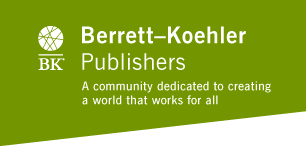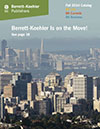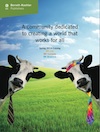Press Contact: Katie Sheehan, ksheehan@bkpub.com, 415.743.6477
Interview Questions for Belva Davis
Sample questions for Davis, author of Never in My Wildest Dreams
On her career, breaking barriers, motherhood, politics, and journalism.
Your book starts out with an absolutely riveting recounting of one of your earliest assignments as a reporter—the 1964 Republican National Convention in San Francisco. You call it the “breech birth of a right-wing revolution.” Tell us what happened that day.
A young Hillary Clinton played a surprising roll in the Goldwater campaign. What was that?
You had a pretty tough childhood that included abuse and being somewhat abandoned by your mother. How hard was it for you to write about that?
How much of your will to succeed came from your hardscrabble upbringing?
What was it like working in a media world that was almost totally segregated?
You had an encounter with the legendary R&B artist James Brown that you thought would end your career. Tell us about it.
For anyone who didn’t live through the 1960s and 70s and who doesn’t understand what it was like to be among the first women and the first persons of color in TV broadcasting, how would you characterize those early years?
You had opportunities to meet and talk with Dr. Martin Luther King Jr. What was your most memorable occasion?
You had somewhat of an inside track on covering one of the most controversial groups of the 1960s and 70s—the Black Panthers. You even visited Huey Newton’s apartment several times. How did you come to know Newton and what was that experience like?
Because you personally were a part of the changes taking place in America, did you ever find it hard to be objective in covering those changes?
In the beginning you say you were unsure of yourself as a broadcast journalist. How long did it take for you to feel you no longer needed to prove yourself?
Your encounters with the famous went beyond just interviewing them or reporting on them, like the night you met Michael Jackson and the Jackson Five. Tell us that story.
Recently in an interview with Barbara Walters, Oprah Winfrey said she was glad she never got married and had children. Barbara herself seemed to suggest that if she had to do it over again, she might not have been a mother either. Did you ever question whether motherhood and a career as a pioneering broadcast journalist were compatible?
You write that your daughter feels she practically raised herself. Did you have any guilt or regrets about how your career affected her?
You covered one of the most tragic periods in San Francisco’s history—the mass suicides in Guyana of members of the Bay Area-based Peoples Temple and the murders just a few weeks later of San Francisco’s mayor and the first openly gay elected public official, Harvey Milk. What was that period like for you personally?
You were not just a broadcasting pioneer, but also a union activist through AFTRA, the union that represents most workers in the broadcasting and entertainment industry. How were you initially accepted in the union? How strong is the union today for broadcasters?
You encountered and or interviewed so many famous and influential people during your long career. It must be hard to pick only one, but do you have a favorite interview and a story about how you snagged it? What about Cuba’s Fidel Castro?
Despite all your many achievements, including eight Emmys and countless other local, national, and international awards, you write that you sometimes feel undeserving. Why so?
What do you hope will be your legacy and most remembered about you?
Who do you hope will benefit most from this book?
Belva, with more than forty years of experience and hindsight, what advice would you give to a young Belvegene Melton?
Additional Resources
 0 items in cart
0 items in cart









